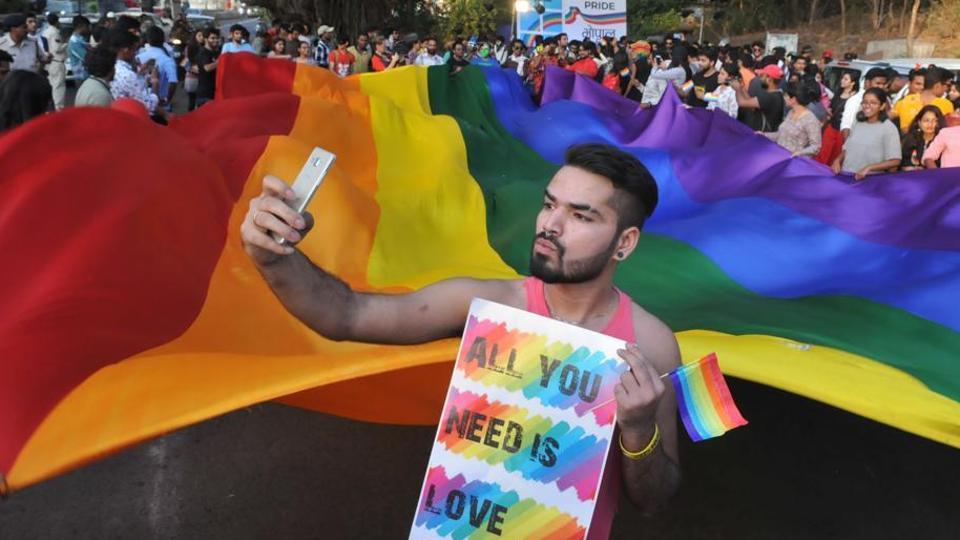List of 65 countries where homosexuality is illegal
Updated April 2024
Gay sex is no longer as widely criminalized as it used to be, but a total of 65 nations still have laws against homosexuality.
The most recent countries to have repealed their anti-gay laws are Dominica in the Caribbean, Mauritius in the Indian Ocean, the Cook Islands in the South Pacific, Singapore in Southeast Asia, Antigua & Barbuda, Saint Kitts & Nevis, and Barbados in the Caribbean, Bhutan in the Himalayas, and Gabon in central Africa.

Below you will find:
THE LIST: A tally of nations with anti-homosexuality laws.
HISTORY: Recent history of many nations repealing or overturning those laws and a few nations newly adopting them.
COMPARISON: A comparison of this blog’s list with the similar list compiled by ILGA, the International Lesbian, Gay, Bisexual, Trans and Intersex Association. (Mostly the lists differ only in relatively small ways, such as whether they are limited to United Nations member nations.)
The list of countries that criminalize homosexuality
Here is this blog’s list of 66 countries and independent political entities with anti-homosexuality laws, with links to the blog’s coverage of them.
Africa
- Algeria
- Burundi
- Cameroon
- Chad
- Comoros
- Egypt
- Eritrea
- Eswatini (Swaziland)
- Ethiopia
- Gambia
- Ghana
- Guinea
- Kenya
- Liberia
- Libya
- Malawi
- Mauritania
- Morocco
- Namibia
- Nigeria
- Senegal
- Sierra Leone
- Somalia
- South Sudan
- Sudan
- Tanzania
- Togo
- Tunisia
- Uganda
- Zambia
- Zimbabwe
Asia, including the Middle East
- Afghanistan
- Bangladesh
- Brunei
- Indonesia (Aceh Province, South Sumatra Province and four cities in other provinces)
- Iran
- Iraq
- Kuwait
- Lebanon (law ruled invalid in one court in 2014 and disqualified for use against same-sex intimacy in another court in February 2017)
- Malaysia
- Maldives
- Myanmar
- Oman
- Pakistan
- Palestine (Gaza Strip only)
- Qatar
- Saudi Arabia
- Sri Lanka
- Syria
- Turkmenistan
- United Arab Emirates
- Uzbekistan
- Yemen
Americas
In the United States, anti-sodomy laws were ruled unconstitutional by the U.S. Supreme Court in 2003, but they are still on the books in 12 states: Florida, Georgia, Kansas, Kentucky, Louisiana, Massachusetts, Michigan, Mississippi, North Carolina, Oklahoma, South Carolina and Texas. Conservative state legislators refuse to repeal the laws and, in some cases, police occasionally still arrest people on the basis of them. In the recent past, dozens of LGBT people were arrested for violating those laws, but the arrestees were freed because prosecutors won’t seek convictions based on laws that have been ruled unconstitutional. Recently, on Supreme Court Justice has opined that the Court should revisit its decision that decriminalized sodomy.
Oceania
Europe
No country in Europe has a law against homosexuality. The last European location with such a law was Northern Cyprus (recognized as a country only by Turkey), which repealed its law in January 2014.
Also in Europe and worth mentioning but not on the list of countries with laws against homosexuality are:
- Russia, which enacted an anti-“gay propaganda” law in 2013 prohibiting any positive mention of homosexuality in the presence of minors, including online. In 2022. Russia extended that prohibition to cover all positive mentions of same-sex love in any traditional media, social media, advertising or movies, not just in those with children in the audience;
- Lithuania, which passed a similar law but subsequently weakened it. The seldom-enforced Law on the Protection of Minors has been repeatedly debated by Lithuanian officials and challenged in court.
- Hungary, which passed an “anti-LGBTQ” law in 2021. The law aims to prohibit minors from having access to information about transsexuality and to content that “promotes” homosexuality.
As noted above, Libya and Nigeria also have anti-“gay propaganda” laws in addition to their laws outlawing same-sex intimacy.
History
Overall, a strong trend is moving the world away from homophobic repression — though it’s happening slowly.
When the International Lesbian, Gay, Bisexual, Trans and Intersex Association (ILGA) published an updated report on “State-Sponsored Homophobia,” began documenting the laws that are used to persecute LGBT people in 2006, it counted 92 countries that criminalized same-sex relations.
The latest countries to end the criminalization of same-sex intimacy are Dominica (2024), an island nation in the eastern Carribbean, and Mauritius (2023), an island nation in the western Indian Ocean.
Also in 2023, the Cook Islands, part of the Realm of New Zealand in the South Pacific, which repealed its sodomy laws by an act of its local parliament.
In 2022, the southeast Asian island nation Singapore repealed its colonial-era sodomy law in Parliament, the Caribbean island of Barbados had its laws against buggery and gross indecency struck down by its high court, and the Eastern Caribbean Supreme Court (ECSC) struck down laws criminalizing same-sex intercourse in St. Kitts and Nevis and in Antigua & Barbuda. The ECSC is currently considering challenges to laws from several other Caribbean countries.
The number of nations with anti-gay laws had dropped to 71 on Feb. 17, 2021, when Bhutan repealed its anti-sodomy law.
Similarly, on June 2019, Botswana’s High Court overturned that nation’s colonial-era laws that criminalized “carnal knowledge of any person against the order of nature.”
Chad adopted a new anti-gay law in 2017 and Gabon did so briefly in 2020. Otherwise, recent changes have been positive.
In Trinidad, the High Court overturned the country’s anti-sodomy law in 2018, however that decision is subject to an appeal to the Judicial Committee of the Privy Council in the UK, the country’s highest court. That year in India, the Supreme Court overturned the nation’s 158-year-old prohibition of sex “against the order of nature.” Angola adopted a new Penal Code without an anti-gay provision in January 2019. Bhutan did the same in February 2021.
Another recent step away from repression was the defeat of the terrorist regime known as the Islamic State, ISIS and ISIL, which operated in Syria and Iraq as a harshly anti-LGBT government. This blog had listed it as a de facto country, but now it has been removed from the blog’s list.

Other countries that recently made progress have included:
- Belize, where the Supreme Count in August 2016 overturned that nation’s anti-sodomy law as applied to consensual sex.
- Seychelles and Nauru, which both repealed their anti-gay laws in May 2016.
- Mozambique, which adopted a new Penal Code in the second half of 2014 and was dropped from this list in early 2015.
- The tiny nations of Palau in the western Pacific Ocean and São Tomé and Príncipe in the Atlantic Ocean off the shores of Central Africa, which both decriminalized homosexuality and were dropped from the blog’s list in 2014.
- Northern Cyprus, which repealed its anti-homosexuality law in January 2014, eliminating the final European location with such a law (Northern Cyprus is recognized as a country only by Turkey).
COMPARISON
This site’s list of nations with anti-gay laws is essentially the same as ILGA’s. As of spring 2019, the ILGA report stated correctly that “70 UN member States still criminalise consensual same-sex sexual acts between adults (68 by explicit provisions of law, 2 de facto).”
This site’s list includes three nations not counted on the ILGA list. Two are not members of the United Nations:
- Palestine/Gaza
- Niue, a self-governing country that is part of the realm of New Zealand. Niue had previously been omitted from this list due to a misapprehension (shared with ILGA) that its buggery laws were repealed by New Zealand in 2006. In fact, Niue did not accept the new Criminal Code passed by the New Zealand Parliament, so its original Criminal Law Code with its buggery laws is still in effect. The country is not known to actively prosecute cases under the law.
The third is:
-

Indonesian police escort several of the 141 people arrested during an anti-LGBT raid in May 2017. (Photo courtesy of Inquirer News) Indonesia, where a large province and some cities outlaw homosexual acts. ILGA mentions it in its category of “subnational entities” with anti-gay laws.
In a change from its past practice, the new ILGA report included Egypt in its main list, labeled as implementing “de facto criminalization.” In this site’s view, Egypt’s vague but harshly enforced law against “debauchery” is as much an anti-LGBT law as many other countries’ vague and often unenforced laws against “unnatural acts.”).
Erasing 76 Crimes has resisted including Russia on its list simply because Russia does not have a law against homosexual activity. That doesn’t mean that Russia isn’t homophobic, of course. It sometimes enforces its notorious law against “gay propaganda” and the Russian government did not intervene in the anti-gay crackdown in Russia’s semi-autonomous Republic of Chechnya.

Although Russia and Chechnya deny it, in 2017 Chechen police illegally arrested at least 100 men on the grounds of their suspected sexual orientation. Detained in two known illegal prisons, they were tortured, humiliated and beaten. At least three were killed. The anti-gay violence continued in 2019.
This site’s current total of 66 countries would be 68 if the list included Russia and Lithuania, two countries that do not have laws against homosexual acts but do have repressive laws against “propaganda of homosexuality.” (Lithuana’s anti-“propaganda” law has been challenged before the European Court of Human Rights, which has not yet made a decision.) Libya and Nigeria have similar anti-propaganda laws, but they also prohibit same-sex relations, so they are already on the list.
Back in 2012, based on a separate, nearly complete count, St. Paul’s Foundation for International Reconciliation cited a total of 76 countries. That list was used as the basis for naming that year’s Spirit of 76 Worldwide program aimed at repealing those laws. It also inspired the name of this site — “Erasing 76 Crimes.”
For more information, download these PDF files:
- State-Sponsored Homophobia (2019 edition of ILGA report)
- ILGA maps of countries that recognize and those that reject gay and lesbian rights (2017).
See also this blog’s article on nations that impose the death penalty for homosexual acts.
Related information:
- #OUTLAWED. The love that dare not speak its name: A report from Human Rights Watch in 2019 about 69 countries with anti-gay laws.
- Either 69 or 73 countries have anti-gay laws: An analysis of the differences between the HRW list of 69 countries and this blog’s list of 73 countries with anti-gay laws.
- 76 Countries Where Anti-Gay Laws Are As Bad As Or Worse Than Russia’s. Each country’s anti-LGBTI law is summarized in a list compiled by BuzzFeed in 2013. With photos.
- Countries that still criminalise homosexuality. AntiGayLaws.org publishes tables for each continent, citing the language of each country’s anti-LGBTI laws. The site tells whether the country has ratified the International Covenant on Civil and Political Rights (ICCPR) and/or allows the UN to monitor and assess its human rights record.
- The Sexual Rights Law and Policy Database, which is compiled by the Sexual Rights Initiative, a coalition of organizations from Canada, Poland, India, Egypt, Latin America and Africa that work together to advance human rights related to sexuality at the United Nations.
Overall, this article’s content is in these often-searched categories:
- Countries where homosexuality is illegal
- Where is it illegal to be gay
- Countries where being gay is illegal
- Most homophobic countries
- Anti-homosexuality laws
- Anti-LGBT laws
- Anti-LGBTI laws
- Anti-LGBTQ laws


